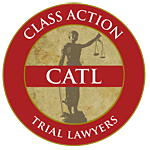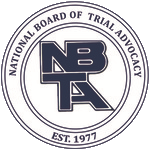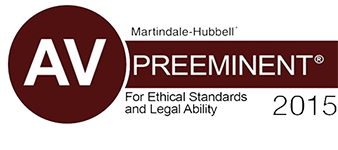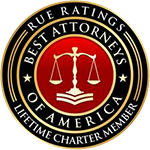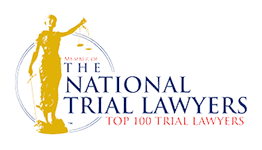
Following an auto collision, determining fault can pose a great challenge. No two car accidents are the same, and the complexity and abundance of factors involved in a vehicular wreck can make it difficult to properly hold the responsible party accountable for their negligence. Investigations into medical and police reports can provide supportive evidence, but a reliable account from a credible eyewitness is one of the best ways to support a claim.
It is not enough to simply have an eyewitness account of the accident—the credibility of the witness must also be taken into consideration. Witness credibility is essential in all legal situations, but a witness’ statement can be especially central to a car accident case, in which the word of one driver is weighed against the other. If you have been involved in an auto collision, you need to know that you have the support and expertise of a law firm thoroughly familiar with car accident law. A proficient legal advocate will know how to use a qualified witness’ statement to effectively support your claim, and will further be able to ascertain which witnesses are satisfactorily credible in their account of the incident.
Qualities of a Credible Witness
When it comes to car accident claims, there are specific qualities which can render a witness more or less credible. To establish credibility, a witness must be able to adequately show that they possess the qualities that lend authority to their account and make them worthy of trust. In short, a witness can help prove what happened, so what they say should be accurate and dependable. To demonstrate their statement is reliable, a witness should be:
- Impartial. A credible witness should be unbiased and have no possibility of personal gain from their testimony. If a witness is your friend or family member, has personal relationships with someone involved in the accident, or could in any way benefit from the outcome of the case, their testimony is not likely to support your claim. Similarly, there should be no evidence that the witness has a particular bias for or against anything or anyone involved in the accident. For example, a pizza delivery driver who recently lost their job might not be the most credible witness in an incident involving a driver from the same pizza company, whether they personally know the driver or not.
- Present for the Entirety of the Incident. In many cases, the noise of an accident attracts the attention of bystanders who quickly turn to look at the scene. A bystander may feel that they witnessed the accident, but, in reality, they only observed the tail end of an incident originating several seconds and miles earlier. A reliable witness should be able to show that what they observed was in fact the totality of the accident, and not the aftermath.
- Attentive. The credibility of a witness may be undermined by claims that they were not sufficiently paying attention, and were instead distracted by other activities such as talking on the phone, listening to music, walking a dog, or attending to a child. Being in the vicinity of a car crash does not necessarily make a person a good witness. To help your case, an eyewitness needs to have paid close attention to the event as it unfolded, and should be able to provide specific and accurate details they observed.
- Physically Capable. The most obvious physical capability a witness should possess is clear vision, but it is not the only one. Witnesses need to have a strong memory and good hearing in addition to unobstructed eyesight. If the witness uses glasses, contacts, or hearing aids, it must be demonstrated that they were wearing them at the time they witnessed the accident.
- Mentally Capable. If an observer has any form of mental health illness, memory loss, cognitive limitation, or is prone to confusion, disorientation, or hallucination, they are unlikely to be a credible eyewitness. Human memory can be flawed under any circumstances, and the added complication of a mental or psychological impairment of any kind may interfere with a person’s ability to observe or recall the scene well.
- Consistent. Frequent changes to an account of the accident can raise a serious red flag. A statement from a witness should be taken as soon as possible after the accident occurs, and the content of that statement should be consistent over time. If a witness changes details in their account of the nature or sequence of events, it may be evidence that at least some of the testimony was fabricated or forgotten.
- Disinclined to Speculation. When an eyewitness makes a report of what they saw, the account should stay as close to objective and observable facts as possible. Some witnesses may be inclined to add speculative details or pass judgments on the events. Witnesses should not make guesses about things like who was at fault, how fast the cars were travelling, or the emotions of the drivers if there is no evidence to support their claims.
- Sober. This may seem like an obvious qualification, but it is important to make sure that a witness was not under the influence of drugs or alcohol at the time they observed or made a statement about the accident. This can include people who use prescription drugs for a legitimate medical issue, or restaurant patrons sitting on a patio drinking wine near the scene of the crash. If substance use or abuse may in any way be involved, it can be used against the legitimacy of an observer’s account.
- Familiar with the Subject Matter. Unless they are an expert in the field, a witness should not try to make estimations a layperson would not be able to make. This could include giving statements about topics such as the car’s rate of acceleration, stopping time and distance, mechanical elements of the vehicle, or potential health repercussions incurred by the drivers. A witness should only discuss matters with which they are knowledgeable and comfortable.
- Relying Only on Personal Observation. After observing a traumatic event such as a car accident, it is natural for a person to experience some confusion. It can be easy to pick up and repeat the things people around are saying. However, it is imperative that the testimony of the witness is their own personal observations, and not a fact or detail they heard someone else say at the scene.
- Without a Damaging History. If the witness has a long criminal history of dishonest behavior, it can be used against them to weaken their credibility. Even if the history is not criminal in nature, evidence that can prove or highly suggest a dishonest character can be damaging.
Golden Law Office Will Work for You
Determining a witness’ credibility is not always straightforward, but fortunately, it is not something you have to do on your own. At Golden Law Office, we understand that the financial and health repercussions of an auto accident are never insignificant. We pay attention to every detail of your case to make sure you have the greatest chance of receiving full compensation for your losses. Contact us today to start a discussion about how a Richmond car accident lawyer can work for you.
